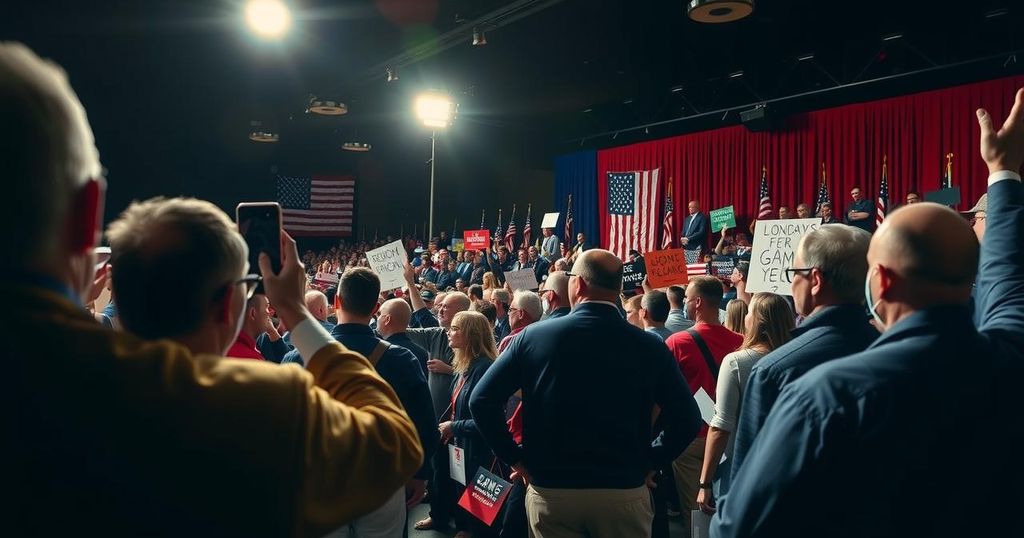Donald Trump’s Campaign Stumbles Under Unpaid Rally Dues and Financial Strain

Donald Trump is facing a substantial accumulation of unpaid dues related to his political rallies, primarily involving costs for security and police overtime. As he campaigns for the presidency against Kamala Harris, who leads in various polls and fundraising, Trump’s financial difficulties are highlighted by numerous outstanding invoices owed to cities across the United States. His long history of delayed payments raises concerns about his financial management as he navigates the 2024 election landscape.
Donald Trump, as he campaigns for the presidency in the United States, is facing an increasing backlog of unpaid dues related to his rallies, encompassing costs such as security and police overtime. Despite being a prominent Republican candidate, Trump has accrued numerous liabilities for services rendered during his previous rallies and legal battles, which raises significant concerns about his financial management. As the 2024 elections approach, he is poised to contest against Democratic nominee Kamala Harris, who has recently outperformed him in several crucial polls and significantly increased her fundraising efforts. A Marist poll released recently indicates that Harris leads Trump by five points, with additional polls further revealing her advantage. Moreover, Harris has reportedly surpassed $1 billion in fundraising, achieving nearly double the amount raised by Trump’s campaign in the past three months. The Trump campaign is experiencing a marked decline in small-dollar donations, making up less than a third of total contributions, compared to nearly 50% during the same period of the 2020 election cycle. Amidst these financial challenges, Trump owes numerous municipalities across the nation significant sums related to rally costs. Notable among these are outstanding invoices from Prescott Valley, Arizona, for over $25,000, and Mesa, Arizona, which has billed Trump for over $64,000 for an event held in 2018. Other cities, such as El Paso, Texas, claim Trump owes them over $569,000 from a 2019 rally, while St. Cloud, Minnesota, is awaiting a payment of $208,935.17 for services provided during a rally in July. The pattern of unpaid bills raises alarm among several jurisdictions, leading many to implement measures requiring Trump’s campaign to pay upfront for municipal services due to previous incidents of late payments. Additionally, former President Trump’s legal issues compound this financial strain, with reports indicating he has utilized over $100 million in campaign funds to cover legal expenses related to multiple lawsuits, including allegations of election interference.
This article addresses Donald Trump’s persistent issue of unpaid bills associated with his campaign rallies and legal expenditures. These financial concerns gain prominence as the 2024 presidential election approaches, highlighting Trump’s pattern of delayed payments to municipalities that have provided security and other services for his rallies. The context of his financial difficulties is further exacerbated by his current competition against Vice President Kamala Harris, who has shown strong fundraising capabilities and leads in polls. The implications of these unpaid dues suggest ongoing financial instability for Trump’s campaign, reflective of a broader history of fiscal disputes dating back to his pre-political career.
In summary, Donald Trump’s repeated creation of unpaid dues related to his rallies raises significant questions regarding his financial oversight and campaign management. As he heads into a competitive election season against a well-financed Kamala Harris, these outstanding obligations, coupled with his existing legal fees and challenges, pose a critical barrier to his campaign’s viability. The necessity for Trump’s campaign to establish better financial practices will be imperative in assuring both voters and financial contributors of its sustainability and credibility.
Original Source: www.aljazeera.com








